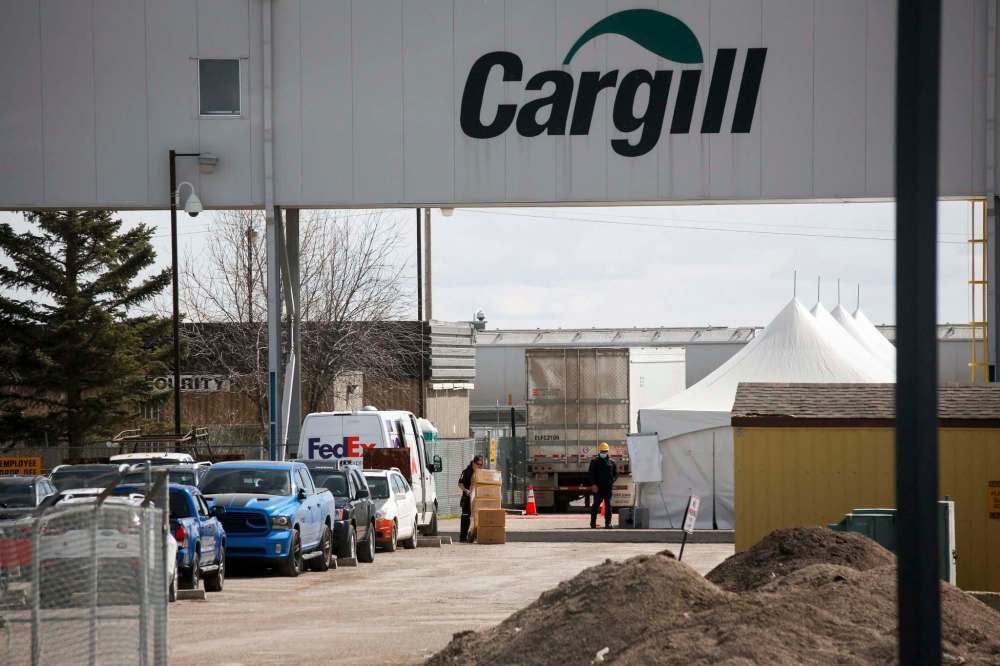Pandemic exposes high-risk industries
Read this article for free:
or
Already have an account? Log in here »
To continue reading, please subscribe:
Monthly Digital Subscription
$0 for the first 4 weeks*
- Enjoy unlimited reading on winnipegfreepress.com
- Read the E-Edition, our digital replica newspaper
- Access News Break, our award-winning app
- Play interactive puzzles
*No charge for 4 weeks then price increases to the regular rate of $19.00 plus GST every four weeks. Offer available to new and qualified returning subscribers only. Cancel any time.
Monthly Digital Subscription
$4.75/week*
- Enjoy unlimited reading on winnipegfreepress.com
- Read the E-Edition, our digital replica newspaper
- Access News Break, our award-winning app
- Play interactive puzzles
*Billed as $19 plus GST every four weeks. Cancel any time.
To continue reading, please subscribe:
Add Free Press access to your Brandon Sun subscription for only an additional
$1 for the first 4 weeks*
*Your next subscription payment will increase by $1.00 and you will be charged $16.99 plus GST for four weeks. After four weeks, your payment will increase to $23.99 plus GST every four weeks.
Read unlimited articles for free today:
or
Already have an account? Log in here »
Hey there, time traveller!
This article was published 27/04/2020 (2059 days ago), so information in it may no longer be current.
In both Canada and the United States, two unrelated industries — personal-care homes and meat-packing plants — have been hit especially hard by the COVID-19 pandemic. Employers in those two industries have in the past kept their costs down by keeping the wage rates low and by making only rudimentary provision for the health of their workers.
The COVID-19 experience has shown this system does not work anymore — not in an era when a new virus can spread around the world so quickly that many of the affected countries don’t even know what hit them until the intensive-care units of their hospitals are already full. These vitally important industries should treat their workers better in preparation for the next pandemic.
In Quebec, more than 1,000 of the 1,340 people who have died from COVID-19 were seniors living in nursing homes. It got so bad that Quebec Premier François Legault called in the Canadian Armed Forces to care for neglected seniors in his province’s care homes.

Ontario nursing homes have been affected on nearly the same scale. Chief Public Health Officer of Canada Dr. Theresa Tam reported two weeks ago that nearly half of all COVID-19 deaths in Canada were linked to long-term care facilities. In all provinces, care homes rely heavily on casual and part-time help so as to avoid the cost of fringe benefits such as holidays, sick pay and pension coverage.
As a result, care-home staff have often had to work in several different institutions (a practice which will reportedly be halted in Manitoba effective May 1). They cannot readily take time off if they are coming down with infection. This system can compel them to carry infectious diseases from one nursing home to another. Personal protective equipment is often not provided or not used.
Three huge slaughterhouses in the U.S. –— in Sioux Falls S.D., Worthington, Minn. and Waterloo, Iowa — found so many of their workers sick with COVID-19 that they closed their doors and stopped receiving livestock. In Canada, Cargill’s plant at High River, Alta., and the JBS plant at nearby Brooks closed for the same reasons.
Workers on meat-packing production lines are jammed close together, allowing infection to easily be passed from one to another. Protective equipment for the workers is designed to prevent industrial accidents but not to stop communicable diseases.
In the Alberta plants that have closed, many of the workers are temporary foreign workers or recent immigrants, and many of them share living quarters together on account of low pay. As a result, infections picked up at work can be quickly passed to housemates who are also workmates.
Pay, hours and working conditions in these industries are not a purely private matter between employers and their workers. The present structure has led to intolerable levels of disease and death in personal care homes. Canadians and Americans rely on the meat-packing industry of the two countries to feed their families. A few brief closures of slaughterhouses may not lead to famine in the land, but with all the closures that have happened, the food supply is beginning to look precarious.
Governments of Canada and the provinces should all be keeping lists of the vulnerabilities that came to light in this season of infection, anxiety and death. Nursing homes must by now be on everybody’s list. Meat-packing plants should also be part of Canada’s post-COVID-19 reform program.









